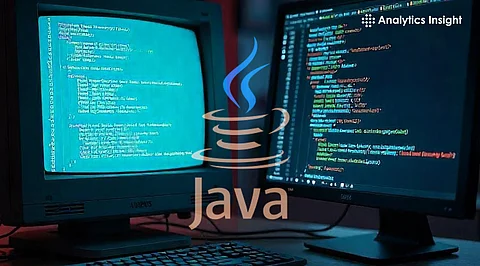

Java is modernizing with frequent updates and cleaner syntax.
It powers critical systems across banks, Android, and enterprises.
Java supports future tech like cloud computing and AI development.
There's a general notion that Java is a geriatric, outdated programming language that nobody uses anymore. More recent languages such as Python, JavaScript, and Kotlin tend to get all the attention. But Java is hardly deceased. On the contrary, it's evolving rapidly and continues to play a significant part in developing the software that powers the world.
Java began in 1995, and for a long time, it was used to create large applications. It executes applications on phones (primarily Android), large websites, banks, and many companies. However, people started perceiving Java as slow and too complex relative to newer and easier languages. Others felt that Java was outdated and could not match the quick pace of the latest technology.
Java's developers have been hard at work making the language more efficient and user-friendly. In recent years, Java updates have included features that allow developers to write code more quickly and cleanly.
Type Inference (Java 10 and 11): This lets programmers write less code by automatically figuring out the type of a variable instead of having to state it explicitly every time. It’s like Java learning to guess some answers to save time.
Switch Expressions (Java 12 and 13): This update made a common piece of Java code shorter and less confusing.
Records (Java 14 and 15): Records enable developers to easily define classes for holding data without having to write much additional code.
Pattern Matching and Sealed Classes: These assist in making code safer and more readable, particularly for handling various types of data.
Java now launches new versions every six months. That means it's constantly receiving new updates rather than waiting years for upgrades.
Java is utilized in thousands of critical locations. Numerous banks, corporations, and Android applications depend on it due to the fact that it's reliable and secure. In contrast to a few newer languages, Java ensures outdated programs continue to function even as it introduces new capabilities. That allows corporations to avoid rewriting everything from scratch, which is time- and cost-effective.
Also Read: Must-Know Coding Tools for Java Developers
Java is also compatible with new technology. It fits in well with cloud computing where programs run on powerful internet servers rather than only on a single computer. It even has features to assist with creating intelligent AI applications.
Cloud services provided by vendors such as Amazon, Google, and Microsoft all have Java support. This allows developers to easily migrate their Java applications to the cloud, speeding them up and giving them more users. Because most applications these days require scaling rapidly, this support keeps Java in the game.
Even in fields like AI and machine learning, Java is present. It has libraries that help create AI models and process data. While Python gets more attention here, Java remains a solid option for developers building AI-powered apps.
Also Read: Java vs Kotlin: Which is Better for Android Development
Java is not going anywhere. Its ongoing updates, solid community base, and deployment in mission-critical sectors ensure it will be around for a very long time. For developers and companies, Java is a mighty combination of reliability and current features.
In a world full of new programming languages, Java shows that staying relevant doesn’t mean starting over it means evolving and improving. That’s why Java continues to be a language that matters today and will for years to come.
